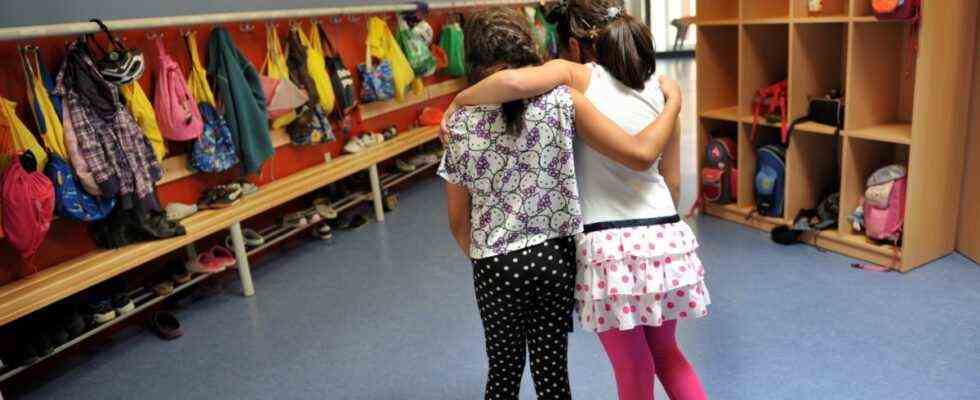In Bavaria, the range of all-day care for primary school children will have to be expanded significantly over the next few years. According to a study by the German Youth Institute and TU Dortmund University, 38 percent of parents in the Free State already have a place for their children of primary school age – but 54 percent would have a need. According to the study published in Munich on Tuesday, between 108,000 and 136,000 additional places would have to be created in Bavaria by 2030 in order to meet the legal entitlement to a place decided by the federal and state governments. Family Minister Carolina Trautner (CSU) said that the care offer also includes care over lunchtime. “That is why the actual childcare quota in Bavaria is not 38 percent, but 57 percent.”
The Free State has launched a program to create 10,000 additional after-school care places. But with its investment aid, “the federal government has chosen a complicated procedure that is currently leading to delays and should therefore be simplified,” said the minister. Nationwide, according to the study authors, “the need for additional expansion is lower than previously assumed”: three quarters of the spaces required up to then already existed today. This means that the personnel requirements and the expansion costs are lower overall than previously assumed.
There is a need for expansion in the western German states, where 30 to 40 percent of the spaces still have to be created. “In North Rhine-Westphalia and Bavaria in particular, significant efforts will still be necessary to find sufficiently qualified staff so that the full legal entitlement to a full-time place in elementary school can be fulfilled from the school year 2029/30,” said Thomas Rauschenbach, scientific director of the Dortmund research association.
In Bavaria, almost 176,000 of the 461,000 elementary school pupils would have made use of an all-day offer in 2020. According to the researchers, the number of primary school students is likely to grow by 65,000 by 2030. This means that between 108,000 and 136,000 additional places will be needed in the Free State by then. For this, an additional 4,100 to 7,800 full-time positions are required. The researchers put the investment costs for the additional places at 1.2 to 1.5 billion euros, and the additional personnel costs at approximately 300 to 600 million euros per year, depending on the personnel key and qualifications.
In Thuringia, on the other hand, no additional demand at all is expected until 2030; in the other eastern German territorial states there is only a small need for personnel. “The offer is already well developed here, and the number of children will sometimes decline in a few years,” explained the researchers.
The federal government has promised the federal states to support the all-day expansion with up to 3.5 billion euros for the infrastructure and to contribute permanently to the running costs. The all-day project is “an educational policy challenge”, but seems feasible, said Rauschenbach.

